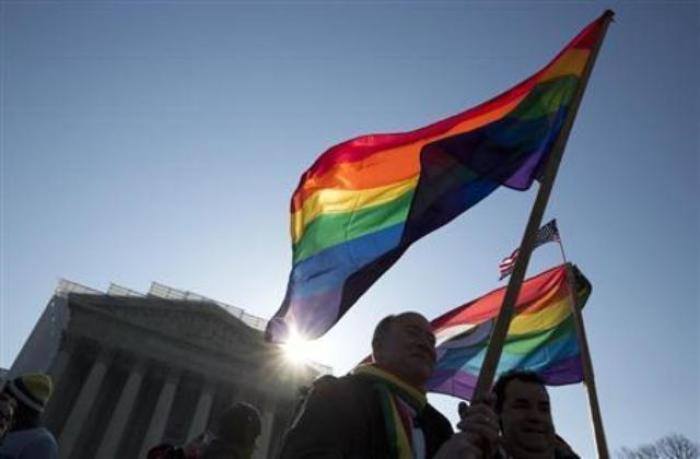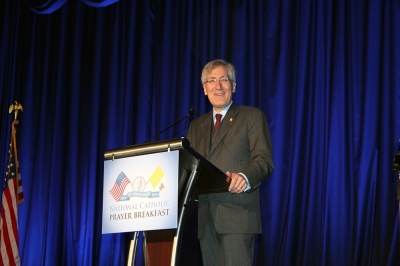Robert P. George: 'Ideological Power Play' by Liberal Judges to Blame for Marriage Laws Being Overturned; Judges Ignoring Counterarguments (CP Video Interview)

Judges who have been overturning marriage laws are misreading the U.S. Supreme Court rulings and ignoring counterarguments in order to promote their own ideological agenda, Robert P. George, McCormick Professor of Jurisprudence at Princeton University, told The Christian Post in a video phone interview.

"This is a pure ideological power play by liberal judges, some of whom were Republican appointed, ... who don't like traditional morality and the traditional understanding of marriage and want to overturn it," George said. "So they're abusing their offices, they're usurping the authority of the elected representatives, ... and sometimes the people themselves acting through referendums and initiatives, to impose their own vision, their own preferences, their own political policy preferences on the American people. It's not right and it's not constitutional. Judges acting in the name of the Constitution are themselves acting unconstitutionally."
Last Summer, the U.S. Supreme Court ruled in two same-sex marriage cases. One upheld a lower court ruling that struck down California's "prop 8," which defined marriage as the union of one man and one woman. The other, U.S. vs. Windsor, ruled unconstitutional the part of the Defense of Marriage Act that said federal law will not recognize same-sex marriages in states that allow couples of the same gender to get married. Since then, many state courts, federal district courts and federal appellate courts have overturned state marriage laws, arguing that the U.S. Supreme Court required, suggested or implied that they do so in the Windsor decision.
Overturning marriage laws was never the intent of Windsor, George argued. Rather, the Court only wanted to do what it did, which was to say that state contracted marriages must be recognized by the federal government. When judges use Windsor as justification for striking down marriage laws, they are actually imposing their own views of what marriage should be rather than faithfully interpreting the law, he claimed.
"Judges who are very eager, for ideological reasons of their own, to invalidate marriage laws to promote the ideology that's behind the movement for same-sex marriage are seizing on the — Windsor decision as a pretext for invalidating the laws that have been on our books historically, have always served us well — understanding marriage as the conjugal union of husband and wife," George said.
George authored, with Sherif Gergis and Ryan Anderson, a Harvard Law journal article and a book based upon that article, What is Marriage? Man and Woman: A Defense, making a case for maintaining the traditional definition of marriage for public policy purposes. Justice Samuel Alito cited that book in his dissent to the Windsor decision, George pointed out.
Though it is considered proper to address counterarguments in judicial opinions, George said that the judges overturning marriage laws are ignoring his arguments. The reason George believes they are doing so is that they do not have answers to his arguments.
"The argument is very inconvenient, it gets in their way. They are in a headlong rush to redefine marriage for their own ideological purposes, so they refuse to engage the best arguments that are available on the other side, despite the fact that those arguments are being made," he said.
George provided a brief summary of his argument in the interview. Here is an edited transcript of what he said:
Marriage is, and historically has been, the relationship that brings together man and woman as husband and wife to be father and mother to any children who are born of that union.
Not every marriage will produce a child, but every child has a mother and father and deserves to be known and loved by, and to be able to know and love, those parents who gave that child life. So, our marriage laws, our conjugal understanding of marriage, as embodied in our laws, has historically fulfilled the purpose of maximizing the chances, it doesn't work every time, but it maximizes the chances that a child will be brought up with a very great blessing of knowing and being known by his mother and father in the marital bond, the loving bond of man and woman that brought that child into existence.
That's the ideal. Now when the ideal doesn't happen, we have ways of dealing with that. Adoption, for example, is a wonderful way the we have historically provided, where possible, a mother and father to orphan children. There are ways we deal with the cases where the ideal cannot be realized. But we want the ideal to be realized as much as possible for the sake of children, boys and girls, who do best when brought up in the loving bond of their mother and father.
We need to rebuild a marriage culture that will maximize the chances of any child being brought up in that loving bond. the loving bond of the man and woman whose union gave them life.
That's the whole reason the law is interested in marriage at all. The law is not interested in your romantic relationships. What business is that of the laws? The law is not interested in your ordinary friendships or companionships. The law doesn't regulate them, the law doesn't recognize them. It would be a bad thing if they did. Would we want the law intruding itself on our friendships or even our romances? Why is the law interested in marriage at all?
Going all the way back to the Greeks (this isn't a Christian idea) the pagan Greeks, Plato, Aristotle, the Romans ... all recognized marriage.
Why is the law interested in it? For the sake of children. Because we all know that children really do deserve to be brought up, whenever possible, in the loving bond of man and woman as husband and wife who brought them into the world.
Watch the whole interview below:




























